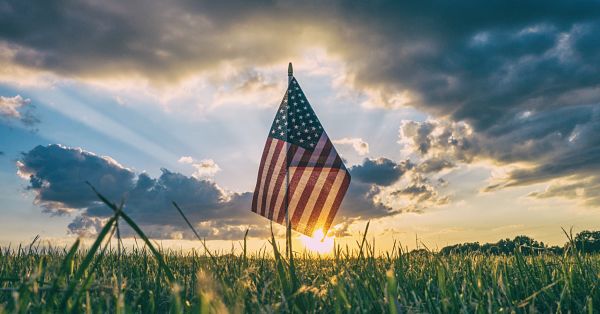 A Note from John Mark N. Reynolds:
A Note from John Mark N. Reynolds:
Christians in the academy disagree on many things, but nearly universally reject the historical analysis of David Barton. This is not because they are liberal (though some are) as many of his critics are very conservative politically. It also is not because the “guild” is protecting anything: good high school teachers who compare what Barton claims to the source material one can Google are disappointed in his work. Barton is, at the very least, incompetent.
Let’s move past Barton. How should we view the Constitution?
I have asked two scholars I trust, Patheos friend Warren Throckmorton and longtime friend and colleague Hunter Baker to respond to the prompt: “Post-Barton- how should we think about the Constitution.”
I have not edited these posts. Tomorrow both scholars will have a chance for a brief response and I will try to sum up what I have learned.
The following is the submission of Warren Throckmorton:
This summer I have enjoyed reading James Madison’s notes on the debates during the Constitutional Convention. Since May 26, I have posted a blog entry about the day’s proceedings. I decided to read Madison’s summaries of what the delegates said to test a claim made by David Barton that “every clause of the Constitution has an overarching Biblical theme to it.” In the past, Barton has claimed that the Constitution quotes the Bible verbatim. Having read the Constitution, I don’t put much stock in Barton’s claims. However, I also hope to get a general sense of what role Christianity played in the formation of the Constitution during the summer of 1787.
Let me hasten to say that I am aware one cannot know everything relevant about Christianity and the Constitution from reading Madison’s notes. Although they are the most complete record we have, he had to summarize the proceedings and may have left out important references to Christianity. Nonetheless, Madison’s notes are a valuable piece of the puzzle.
Thus far, what has made the biggest impression on me is the paucity of references to religion. On one occasion, Ben Franklin made an eloquent call for the delegates to pray every session for the “assistance of heaven.” A follow up motion by Edmund Randolph called for a sermon over the July 4 holiday with daily prayers to follow. According to Madison, the session adjourned without a vote, effectively killing both proposals. Franklin later wrote that “The convention, except three or four persons, thought prayer unnecessary.”
The biggest influence of Christianity on the delegates that I see in the debates is a general sense that humans were easily corrupted by power, money, and prestige. Although without direct reference to the Bible, delegates such as James Madison and Gouverneur Morris spoke in dire terms about the depravity of human nature. Madison said of Morris that he “inculcated so strongly the political depravity of men, and the necessity of checking one vice and interest by opposing to them another vice and interest.”
Madison’s education at Presbyterian Princeton may have inculcated those very beliefs in him and it appears that they found expression in his debate speeches in favor of various checks on the powers of each branch of government. However, I have yet to find references to the Bible as a guidebook or source of principles for governance. References to Great Britain, the experience of European governments and the “ancient republics” of Greece and Rome are much more common.
Furthermore, the delegates voted to avoid the example of many of the states at the time and forbid religious tests for public office. The vote was non-controversial with only weak opposition from Connecticut’s Roger Sherman. About Sherman’s opposition to Charles Pinckney’s motion, Madison recorded that “Mr. Sherman thought it unnecessary, the prevailing liberality being a sufficient security against such tests.”
Despite Sherman’s confidence in the liberal times, the delegates approved the motion without opposition. Pinckney later wrote that he included the no religious test clause because it was “a provision the world will expect from you, in the establishment of a System founded on Republican Principles, and in an age so liberal and enlightened as the present.”
Compared to many of the states at the time, Christianity was not denied, but rather dethroned by the national Constitution. It is of course not thrown away like a Target Weekly Ad but the individual liberty and its rise played role, too. The rule of law and the liberty of conscience was elevated. People of any and no religion can believe what they want in their hearts but the Constitution is the law of the land. In my opinion, the Constitution is neither godless nor biblical. Rather, it is god-neutral, where the believer and unbeliever stand on equal ground before the law.











